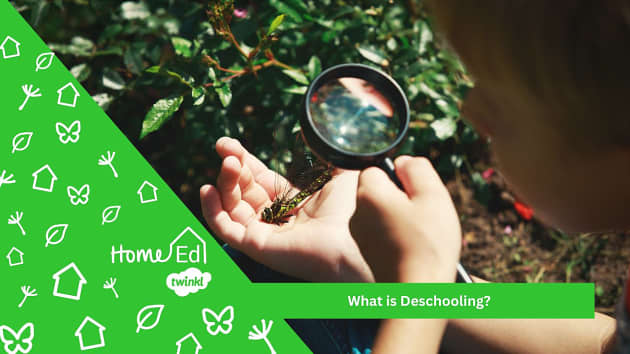
4 min
Deschooling is a word often used in homeschool forums and networks. It’s a word that
you know is real, but you may not be exactly sure about what it means. Read on to
learn more!
Deschooling refers to the process by which individuals, particularly those who are transitioning from traditional school environments to home education, adjust their mindset and habits away from the structured, institutionalised approach of public schooling. It involves unlearning the expectations and behaviours ingrained by traditional schooling and embracing more self-directed, curiosity-driven and flexible approaches to learning and personal growth.
Deschooling can be a positive and acceptable approach to home education in Australia for many reasons. Firstly, it allows children to learn at their own pace and to focus on subjects and topics that interest them. This helps foster a love for learning that traditional schooling often struggles to achieve.
In addition, deschooling encourages a deeper understanding of different concepts rather than memorisation, promoting the development of critical thinking and problem-solving skills essential for success in adult life. Overall, deschooling offers a flexible and personalised education experience that caters to each homeschooled child's unique needs and learning styles.
Deschooling is not an outright rejection of education but a shift in perspective towards a more holistic and personalised learning experience. It encourages individuals to unlearn the rigid structures and pre-defined curriculum of traditional schooling. It is important to note that this process is not limited to only children. Adults may also benefit from deschooling themselves, freeing their minds from their ingrained expectations and experiences of formal education.
The benefits of deschooling are varied. They include:
Deschooling promotes a genuine love for learning by allowing individual children to investigate and learn about topics that genuinely interest them. When learning becomes self-directed, it transforms into a fulfilling and enjoyable experience rather than a chore.
Traditional schooling often focuses on rote memorisation and standardised testing. Deschooling encourages critical thinking, problem-solving and creativity skills that are essential for adult success.
Deschooling emphasises the value of real-world experiences over textbook knowledge. This approach allows children and adults alike to learn from hands-on experiences, fostering a deeper understanding of the world around them and how it works.
Deschooling encourages individuals to take control of their education. This autonomy helps build confidence, self-esteem and a sense of responsibility. These are valuable traits for navigating life well beyond the classroom.
Allow for unstructured learning time where children can explore their interests freely. This could involve visits to museums, nature walks or creative projects.
Foster a sense of curiosity by encouraging questions and providing resources to find answers. This helps children develop a love for learning that extends beyond traditional subjects.
Connect with like-minded individuals who are also exploring deschooling. Sharing experiences, resources and ideas can provide valuable support on this journey. The Twinkl Australia Home Education Group is a beautiful place to connect with other Homeschoolers in Australia.
As a parent, demonstrate the value of lifelong learning by pursuing your learning interests alongside your children and sharing your experiences as you go. This sets a perfect example for them to follow.
Deschooling is not a one-size-fits-all solution, but rather a mindset that challenges the conventional approach to education. It encourages parents and children alike to break free from the limitations of traditional schooling and develop individual learning. By embracing deschooling principles, individuals can grow their love for learning, critical thinking skills and a sense of autonomy that will help them well into their adult lives. Deschooling offers a refreshing educational perspective that values each individual's unique potential.
Still Need More Help?
If you still need more help, you can find Twinkl’s range
of resources here. And don’t forget that we
are always here to help, so if you would like further information, support or advice
why not join our lovely Twinkl
Australia Home Education Facebook Group and follow us on Instagram
where we share excellent resources, ideas and inspiration. You can also sign up for
our weekly newsletter, and keep an
eye out for more blog posts coming soon. They are aimed to help you on your home
education journey. And lastly, A Twinkl membership also comes with free online
support from our Twinkl Cares team - 24/7, so there is always someone on hand to
help you navigate all of our wonderful resources!